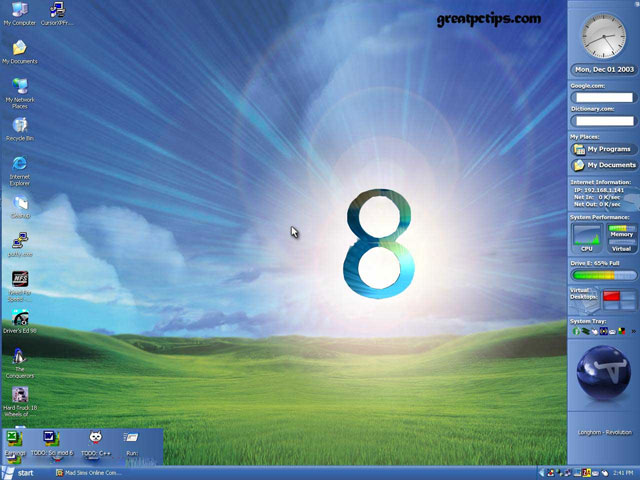7 things to think about before using Windows 8
Microsoft's latest operating system, Windows 8, seems to be right outside the door of every tech user. Consider yourself what you expect when using Windows 8 and it's time to change it.

1. When all PC, tablet, and smartphone are synchronized
Windows 8 aims to unify all your devices, from PC to tablet to smartphone. This proclamation sounds too good, it's like a promise Microsoft will definitely make.
About the tablet, earlier this year, Samsung demonstrated tablet models running Windows 8 at the Consumer Electronics Show (CES 2012). And in an event in June, the company also introduced a tablet duo, collectively called Microsoft Surface. The basic point of these two tablets is that they run Windows 8 RT, one of the three favorite versions of Windows 8.
Unfortunately, current Windows smartphones cannot be upgraded to Windows 8. But if in the future you decide to purchase all Windows 8 smartphones, Windows 8 and Windows 8 tablet PCs, you will be able to sync the human interface applications. Use Metro between devices. You can even access computers and mobile devices with only one login details.
2. Is the new Metro interface convenient?
Metro interface (Metro UI) is mentioned a lot, but what exactly is it? Previous versions of Windows operating systems also have similar artistic features, but Windows 8 will be much different. Metro UI displays Windows 8 applications right on your home screen in tile form with different sizes, shapes and colors. These tile layers contain everything from the background application to email and messages, to photos.
App tiles update in real time, such as Twitter, Facebook news and calendar events. Metro UI runs 'delicious ' on a tablet, especially if you have used a tablet, you are used to switching between home screens. But on a PC, you'll have to get used to scrolling to the home screen where you want the applications you want to use a lot.
3. Power saving than Windows 7
According to a test by Tom's Guide site, Windows 8 uses less power than Windows 7, making laptops run faster. Windows 8 is configured to save battery power by reducing power when you don't use anything that consumes too much electricity. It also closes ports that you don't use, rather than running them in vain.
4. Faster operation
Will Windows 8 run faster? The answer is yes. The recent Consumer Preview version of Windows 8 recently proved to be faster than older Windows versions, in different speed tests. In fact, Lifehacker discovered that Windows 8's boot time is 25 seconds faster than Windows 7, and the new operating system can also do many tasks faster than older operating systems. Sure, the faster speed is only a few seconds, but these seconds are also noticeable when you have to use the PC frequently.
5. Easy to use with many different monitors
If you decide to set up a computer with multiple monitors, Windows 8 may be the best operating system for you. Designed with the goal of using multiple monitors, Windows 8 allows you to customize taskbar updates for each screen or open a window. Microsoft even lets you customize a different desktop wallpaper for each screen or stretch an image for multiple screens. You will be able to run slides on many different screens.
6. Limit third-party browsers
Recent reports indicate that Windows 8 RT, one of the versions used with devices running ARM processors, like on the Surface tablet, may restrict third-party Internet browsers. Therefore, people who prefer Firefox or Chrome than Internet Explorer may not be lucky with Windows 8.
7. Microsoft will stop supporting Windows XP in 2014
Windows 7 and Windows XP are the two most popular operating systems today. If you run Windows 7, you can rest assured by 2020, but if you use XP, you may have to think again and update to Windows 8 soon, because by April 2014, Microsoft plans to stop supporting Windows. XP
You should read it
- ★ Microsoft released Windows 10 Preparation Tool for Windows 8.1 and Windows 7
- ★ Create dual boot system of Windows 7 and Windows 8
- ★ Which operating system will be crowned in the post-PC era?
- ★ Microsoft is developing a low-cost Surface computer running Windows 11 SE
- ★ Windows 8 Consumer Preview before 'coming out'